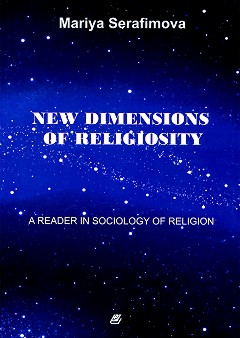

| Доставка за | СофияИзбери друго населено място | |
| Цена за доставка | До автомат на BOX NOW : 1.99 лв. До офис на Еконт: 5.49 лв. До адрес: 4.99 лв. | |
| Опция преглед | Да, при всяка доставка до адрес или офис. | |
| Дати за доставка | 24‑04‑2025 г. или 25‑04‑2025 г. | |
| Експресна доставка | До офис на Еконт за утре Услугата "експресна доставка" до офис се прилага за поръчки направени до 18 часа в работен ден с доставка за следващия работен ден на Еконт. Услугата може да се избере на 2-ра стъпка от създаването на поръчка, ако всички продукти в кошницата са с възможност за експресна доставка! До автомат BOX NOW за днес вечерта Услугата "експресна доставка" до автомат се прилага за поръчки направени до 16:30 часа в работен ден с доставка за вечерта на същия работен ден. Услугата може да се избере на 2-ра стъпка от създаването на поръчка, ако всички продукти в кошницата са с възможност за експресна доставка! До адрес в София за днес Услугата "експресна доставка" може да се избере на 2-ра стъпка от създаването на поръчка, ако всички продукти в кошницата са с възможност за експресна доставка и се изпълнява между 10:00 ч. и 18:00 ч. в работни дни! | |
Основни параметри:  | ||
| Продукт | #086-145 | |
| Вид | Книга | |
| Наличност | Да, на склад - побързай, остават само 3 броя Наличност с единични бройки в склада на store.bg, допълнителни бройки са налични на склад при доставчик. | |
| Издадена | 2011 г. | |
| Издателство | ЮЗУ Неофит Рилски | |
| Категории | ||
| Език | Английски | |
| Корица | Мека | |
| Страници | 184 | |
| Размери | 14.50 / 20.30 / 0.90 cm | |
| Тегло | 0.204 kg | |
| ISBN | 9789546807724 | |
|
New Dimensions of ReligiosityMariya Serafimova Доставка:

Основни параметри:

|
|
Bulgarian Protestants and the Czech village of Voyvodovo Lenka J. Budilova, Marek Jakoubek Нов български университет |
|
Цена: 12.00 лв.
|
| Миграционните вълни - минало, настояще и бъдеще | |||
 Възможна е експресна доставка само за часа в рамките на София, в работни дни от 10:00 до 18:00 часа.  Продуктът е представен с вътрешни страници Цена: 9.30 лв.
|
|||
| Годишник на катедра "Философски и политически науки" | |||
 Възможна е експресна доставка само за часа в рамките на София, в работни дни от 10:00 до 18:00 часа.  Продуктът е представен с вътрешни страници Цена: 8.60 лв.
|
|||
|
Нови религиозни движения Марио Маринов |
|||
 Възможна е експресна доставка само за часа в рамките на София, в работни дни от 10:00 до 18:00 часа.  Продуктът е представен с вътрешни страници Цена: 4.60 лв.
|
|||
|
Масмедийното въздействие Добринка Пейчева |
|||
 Възможна е експресна доставка само за часа в рамките на София, в работни дни от 10:00 до 18:00 часа.  Продуктът е представен с вътрешни страници Цена: 13.10 лв.
|
|||
|
Качествени методи в социологията Владимир Дулов, Марио Маринов |
|||
 Възможна е експресна доставка само за часа в рамките на София, в работни дни от 10:00 до 18:00 часа.  Продуктът е представен с вътрешни страници Цена: 9.70 лв.
|
|||
|
Политическа социология Петя Пачкова |
|||
 Възможна е експресна доставка само за часа в рамките на София, в работни дни от 10:00 до 18:00 часа.  Продуктът е представен с вътрешни страници Цена: 11.60 лв.
|
|||
|
Обществено мнение и правно регулиране Софка Матеева |
|||
 Възможна е експресна доставка само за часа в рамките на София, в работни дни от 10:00 до 18:00 часа.  Продуктът е представен с вътрешни страници Цена: 7.20 лв.
|
|||
|
Социалната философия на Хосе Ортега-и-Гасет Лазар Копринаров |
|||
 Възможна е експресна доставка само за часа в рамките на София, в работни дни от 10:00 до 18:00 часа.  Продуктът е представен с вътрешни страници Цена: 13.80 лв.
|
|||
|
Bulgarian Protestants and the Czech village of Voyvodovo Lenka J. Budilova, Marek Jakoubek |
|||
 Възможна е експресна доставка само за часа в рамките на София, в работни дни от 10:00 до 18:00 часа.  Продуктът е представен с вътрешни страници Цена: 12.00 лв.
|
|||
|
Ако искаш да си първият дал мнение за тази книга, направи го сега! |
Важна информация! Мненията, които най-добре описват книгата, ще бъдат видими при всяко посещение на страницата. За да видиш всички останали мнения, натисни бутона "Покажи всички мнения". Без предупреждение ще бъдат изтривани коментари с обидно, расистко, клеветническо или друго съдържание, което нарушава добрия тон. |
|
|
© 1999 - 2024 store.bg всички права запазени - Общи условия | Политика за личните данни Използваните в представянето на книгата "New Dimensions of Religiosity - Mariya Serafimova" текстови, графични и други материали са собственост на носителите на авторските им права. Всяко копиране и репродуциране на информация, представена в този сайт, е равносилно на безусловно приемане на общите условия и определените в тях лицензни условия за ползване. |